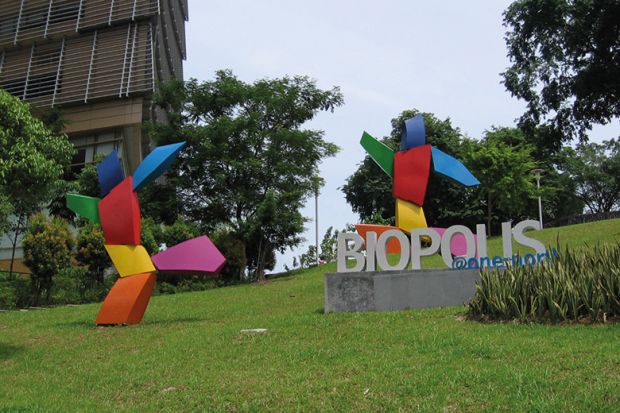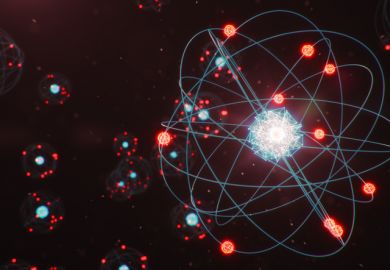Fungible Life is about flows of knowledge, risk and entrepreneurialism in genomic science, focusing on the activities of Biopolis in Singapore, a research centre conceived to capitalise on its pole position between the practices and territories of East and West. The book’s author, Aihwa Ong, a professor of anthropology at the University of California, Berkeley, argues that the science environment in Asia is “the particular outcome of complex mediations between global technologies and situated forces”. Biopolis and its wider scientific context is here explored in terms of a “global assemblage”, rather than a crude opposition between regions.
Ong’s intriguingly titled chapters are clustered into three parts. “Risks” encompasses the politics and cultural negotiation of categorising or mapping “human biological resources” according to race or ethnicity, and the use of the English language to assist the “commercial transnational thrust”. It examines the way that knowledge of “Asian diseases” can be used for trade and status purposes, not least in the politics of the war on cancer. “Uncertainties” focuses on the ethics of scientific practice and the meaning of what constitutes virtue in the context of expatriate scientists who are governed by very different codes of ethics depending on their contexts. “Known Unknowns” examines genetic flows across the globe, past and present, and their connection with power, and finishes with the pursuit of the “athlete gene” of physical supremacy. There is of course a cultural and aesthetic dimension to this work.
A quiet thread running beneath this discussion is the relationship between science and the arts and the role of creativity in bioscience research. As a UK citizen, I find it heartening that the scientists to whom Ong spoke refer to Britain as a place where science is still creative and time is allocated to thought, unlike in the US, where scientists are subject to tremendous commercial pressures.
Anyone interested in cosmopolitan flows of knowledge and risk will find this book of value, as the phenomena that it describes and the methodologies that Ong uses seem to me to be readily transferable. From my architectural point of view, I would have liked to see the flows of people, ideas and indeed the genes that she discusses represented visually in maps as an aid to understanding.
I particularly enjoy the way Ong fits the situated nature of her own authorship, including her Asian background, her family history of cancer and so on, seamlessly into her account, and clearly drawing on her enthusiasm for the writings of Donna Haraway in the process. Although Ong briefly discusses her approach to ethics, I would really have liked to have heard more about how she addressed this issue when writing this book, so as to be able to describe conversations at meals, the body language of those she spoke to and the complex issues of reputation and intellectual property at stake without complex and disabling ethical procedures getting in the way. Such factors play a key role in making this book both a beautiful and engaging piece of writing and an important contribution to a wide spectrum of knowledge.
Flora Samuel is professor of architecture in the built environment, University of Reading.
Fungible Life: Experiment in the Asian City of Life
By Aihwa Ong
Duke University Press, 312pp, £82.00 and £21.99
ISBN 9780822362494 and 2647
Published 28 October 2016




